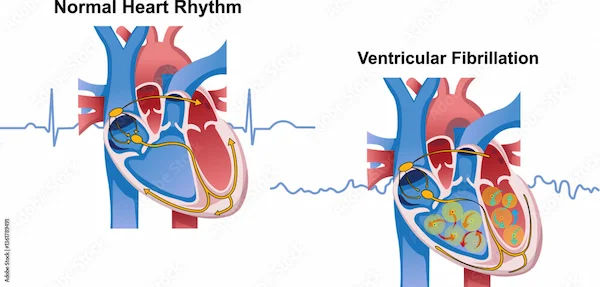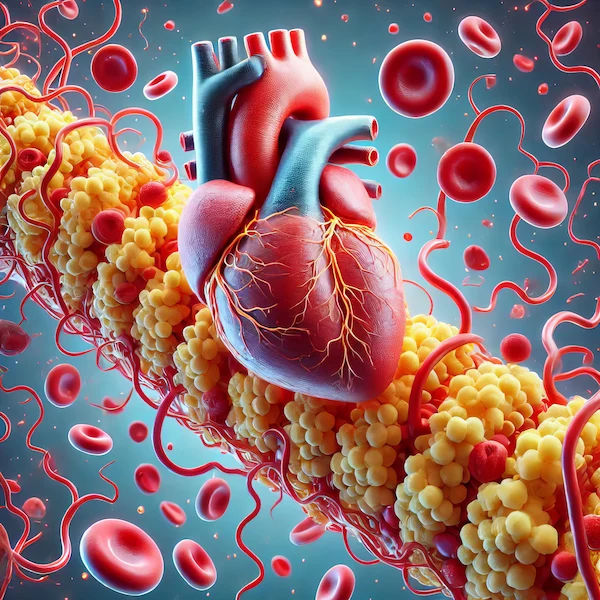- male
- 60 Years
- 20/02/2025
I've been on Axcer 90 along with Aspirin 75 since September 2018 until September 2019. After that, from September 2019 to May 2020, I switched to Axcer 60 with Aspirin 75 mg. I stopped taking Axcer 60 about 20 days ago, and now I'm feeling a bit uneasy in my chest sometimes at night. I had a heart attack back in September 2018 and I've had a preventative stress echo twice in the last 18 months, which came out fine. Is it possible that this uneasiness is some kind of withdrawal effect from stopping Axcer?
Answered by 1 Apollo Doctors
It is possible to experience withdrawal symptoms when stopping Axcser (clopidogrel) abruptly, especially after long-term use. Symptoms may include chest pain or discomfort, shortness of breath, weakness, dizziness, or palpitations. Since you have a history of heart attack, it is important to consult your doctor before making any changes to your medication regimen. To manage any potential withdrawal symptoms, your doctor may recommend gradually tapering off the Axcser dosage instead of stopping it suddenly. Additionally, they may provide alternative medications or adjust your treatment plan to ensure the best outcomes for your heart health.
Dr. Mubarak Suggests...
Consult a Cardiologist
Answered 04/07/2025
0
0

More Cardiology Health Queries
View allI'm trying to understand the best way to evaluate my heart health. If I get TMT and 2D echo tests done, will that give me a full picture of how my heart's working, or should I also include a lipid profile and a hemogram too?
To get a complete picture of the functioning of the heart, it is recommended to also do a lipid profile and a hemogram in addition to TMT (Treadmill Test) and 2D Echo. Lipid profile helps to assess the levels of cholesterol and triglycerides in the blood, which are important risk factors for heart disease. Hemogram provides information about the overall health of the individual, including red blood cell count, white blood cell count, and platelet count, which can also impact heart health. Therefore, including a lipid profile and hemogram along with TMT and 2D Echo can provide a more comprehensive evaluation of the heart's functioning.
Answered by 1 Apollo Doctors
I'm feeling pretty concerned about my wife's situation. She's 32 years old and she's had two abortions in the past. She's currently 23 weeks into an IVF pregnancy. Before getting pregnant, her echo was normal with an EF of 67, but now it shows Grade 1 diastolic dysfunction with an EF of 57, though everything else seems alright. She's experiencing mild breathlessness during activities like bathing. Her blood pressure reads 12490 on the right and 12084 on the left. I'm wondering if I should consider starting her on Labetalol. Is this something we should be worried about?
Considering your wife's medical history and current condition, it is important to address the diastolic dysfunction and high blood pressure to ensure the well-being of both your wife and the baby. Labetalol is a suitable choice for managing hypertension in pregnancy. I recommend starting your wife on tab. labetalol at a dose of 100 mg twice daily initially, with close monitoring of blood pressure. The dosage can be adjusted as needed based on her response. It is essential to continue monitoring her symptoms, blood pressure, and cardiac function regularly throughout the pregnancy. Additionally, it would be beneficial for your wife to follow up with her obstetrician and cardiologist for further evaluation and management of her cardiac condition during pregnancy.
Answered by 1 Apollo Doctors
I'm Ajay Sharma and I'm worried because my cholesterol is high. My total cholesterol is 231, triglycerides are at 248, HDL is 35, LDL is 146, and my non-HDL is 196. Could you give me some advice on what I should do?
Ajay, given your cholesterol levelstotal cholesterol of 231 mgdL, triglycerides of 248 mgdL, HDL of 35 mgdL, LDL of 146 mgdL, and non-HDL of 196 mgdLit's important to take steps to manage and reduce your cardiovascular risk. 1. Lifestyle changes: Adopt a heart-healthy diet rich in fruits, vegetables, whole grains, and lean proteins. Reduce intake of saturated fats, trans fats, and sugars. Incorporate regular physical activity, such as brisk walking for at least 30 minutes most days of the week. Avoid smoking and limit alcohol consumption. 2. Weight management: If you are overweight, losing even a small amount of weight can help improve your cholesterol levels. 3. Medications: Depending on your overall cardiovascular risk profile, your healthcare provider may recommend statin therapy or other lipid-lowering medications to help manage your cholesterol levels. Please consult with your healthcare provider to develop a personalized plan that includes lifestyle changes and, if necessary, medication to effectively manage your cholesterol and reduce your risk of cardiovascular disease.
Answered by 1 Apollo Doctors
Disclaimer: Answers on Apollo 247 are not intended to replace your doctor advice. Always seek help of a professional doctor in case of an medical emergency or ailment.





